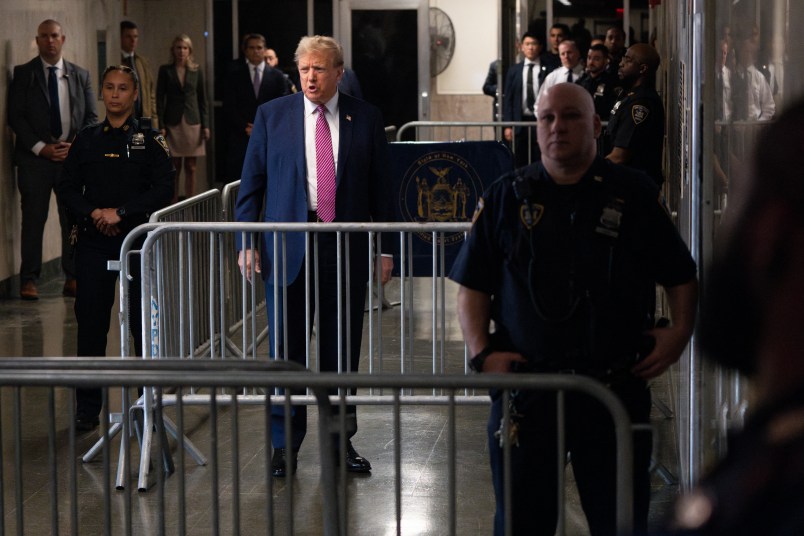DAN ROBERTS | The Guardian
Bipartisan group seeks answers from intelligence chief James Clapper over scale of and justification for NSA surveillance. Read this story on the Guardian here.
A bipartisan group of 26 US senators has written to intelligence chiefs to complain that the administration is relying on a “secret body of law” to collect massive amounts of data on US citizens.
The senators accuse officials of making misleading statements and demand that the director of national intelligence James Clapper answer a series of specific questions on the scale of domestic surveillance as well as the legal justification for it.
In their strongly-worded letter to Clapper, the senators said they believed the government may be misinterpreting existing legislation to justify the sweeping collection of telephone and internet data revealed by the Guardian.
“We are concerned that by depending on secret interpretations of the Patriot Act that differed from an intuitive reading of the statute, this program essentially relied for years on a secret body of law,” they say.
“This and misleading statements by intelligence officials have prevented our constituents from evaluating the decisions that their government was making, and will unfortunately undermine trust in government more broadly.”
This is the strongest attack yet from Congress since the disclosures began, and comes after Clapper admitted he had given “the least untruthful answer possible” when pushed on these issues by Senators at a hearing before the latest revelations by the Guardian and the Washington Post.
In a press statement, the group of senators added: “The recent public disclosures of secret government surveillance programs have exposed how secret interpretations of the USA Patriot Act have allowed for the bulk collection of massive amounts of data on the communications of ordinary Americans with no connection to wrongdoing.”
“Reliance on secret law to conduct domestic surveillance activities raises serious civil liberty concerns and all but removes the public from an informed national security and civil liberty debate,” they added.
The letter was organised by Oregan Democrat Ron Wyden, a member of the intelligence committee, but includes four Republican senators: Mark Kirk, Mike Lee, Lisa Murkowski and Dean Heller.
They ask Clapper to publicly provide information about the duration and scope of the program and provide examples of its effectiveness in providing unique intelligence, if such examples exist.
The senators also expressed their concern that the program itself has a significant impact on the privacy of law-abiding Americans and that the Patriot Act could be used for the bulk collection of records beyond phone metadata.
“The Patriot Act’s ‘business records’ authority can be used to give the government access to private financial, medical, consumer and firearm sales records, among others,” said a press statement.
In addition to raising concerns about the law’s scope, the senators noted that keeping the official interpretation of the law secret and the instances of misleading public statements from executive branch officials prevented the American people from having an informed public debate about national security and domestic surveillance.
The senators said they were seeking public answers to the following questions in order to give the American people the information they need to conduct an informed public debate:
⢠How long has the NSA used Patriot Act authorities to engage in bulk collection of Americans’ records? Was this collection underway when the law was reauthorized in 2006?
⢠Has the NSA used USA Patriot Act authorities to conduct bulk collection of any other types of records pertaining to Americans, beyond phone records?
⢠Has the NSA collected or made any plans to collect Americans’ cell-site location data in bulk?
⢠Have there been any violations of the court orders permitting this bulk collection, or of the rules governing access to these records? If so, please describe these violations.
Please identify any specific examples of instances in which intelligence gained by reviewing phone records obtained through Section 215 bulk collection proved useful in thwarting a particular terrorist plot.
Please provide specific examples of instances in which useful intelligence was gained by reviewing phone records that could not have been obtained without the bulk collection authority, if such examples exist.
Please describe the employment status of all persons with conceivable access to this data, including IT professionals, and detail whether they are federal employees, civilian or military, or contractors.
The Senators signing the letter are: Ron Wyden (D-Or), Mark Udall (D-Co), Lisa Murkowski (R-Alaska), Patrick Leahy (D-Vt), Mark Kirk (R-Il), Dick Durbin (D-Il), Tom Udall (D-NM), Brian Schatz (D-Hawaii), Jon Tester (D-Mt), Jeanne Shaheen (D-NH), Dean Heller (R- Nev),Mark Begich (D-Alaska), Bernie Sanders (I-Vt), Patty Murray (D-Wash), Jeff Merkley (D-Ore), Mazie Hirono (D-Hawaii), Al Franken (D-Minn), Tom Harkin (D-Iowa), Chris Coons (D-Del), Maria Cantwell (D-Wash), Richard Blumenthal (D-Conn), Max Baucus (D-Mont), Elizabeth Warren (D-Mass), Martin Heinrich (D-NM), Tammy Baldwin (D-Wisc) and Mike Lee (R-Utah).
guardian.co.uk © 2013 Guardian News and Media Limited or its affiliated companies. All rights reserved. | Use of this content is subject to our Terms & Conditions | More Feeds











